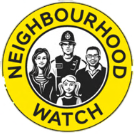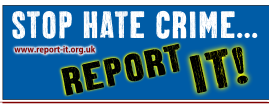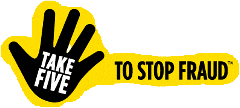





to report a crime anonymously



or use 101






Safer & Stronger
Communities
Together

Vicky Ford mp on cyber security
The digital revolution has brought huge benefits to our society, but it also brings a darker side. Increasingly, the cyber sphere is where modern day crime is being committed and international conflicts are played out. One in ten of us have been the victims of cyber crime. Today individuals are 20 times more likely to be a victim of crime online than offline. Nearly 7 in 10 large businesses have been affected, with an average cost of £20,000 per business and sometimes crippling consequences. Many experts say, “a major cyber attack in the UK is a matter of when, not if.”
We have seen that cyber crime can hit anyone – governments, institutions, businesses and individuals. It also come comes in different guises. It can be organised crime gangs who conduct hacking and phishing on an industrial scale. There are sophisticated scams that can bring down businesses or wipe out life savings, with the proceeds laundered at the touch of a button. Data stolen in cyber breaches often ends up for sale on the Dark Net, where Tor browsers and cryptocurrencies provide further anonymity for law breakers.
So-
Tackling cyber security is a major initiative of the Government which is committed to making Britain one of the safest places to be online. Back in 2016 the five-
The National Cyber Crime Unit leads on the law enforcement investigation of cyber-
The Ministry of Defence works closely with other parts of the national security infrastructure, including GCHQ, MI5 and MI6, on cyber defence. £265 million is being invested in a programme of cyber-
It’s not just attacks at our nation’s defences that we need to protect ourselves against. It is also making sure individuals, especially children, are protected when they go online.
The UK Council for Child Internet Safety represents more than 200 organisations committed to protecting children from harm online, and works with Government to provide advice for schools, particularly around issues such as sexting. It supports social media developers in ensuring their products are safe by design.
The Internet Safety Strategy proposed a new code of practice to remove or address bullying, intimidating or humiliating online content. It also introduced an industry-
Being hacked or the victim of a cyber scam or fraud can be frightening and humiliating. Where money is involved it can also be very expensive. When TSB’s website collapsed their customers were vulnerable and were ruthlessly targeted by cyber criminals. However, there are actions that each of us can take to protect ourselves from scams.
Remember:
A genuine bank or organisation will never contact you out of the blue to ask for your PIN, full password or to move money to another account.
Only give out your personal or financial details to use a service that you have given your consent to, that you trust and that you are expecting to be contacted by.
Don’t be tricked into giving a fraudster access to your personal or financial details.
Never automatically click on a link in an unexpected email or text
Always question uninvited approaches in case it’s a scam. Instead, contact the company directly using a known email or phone number.
Just as in the off-
I hope all readers stay safe and secure online.

Our Member of Parliament for Chelmsford, Vicky Ford, MP, chairs the All Party Parliamentary Group on Cyber Security (which brings together MPs and peers who have a particular interest in this subject), and she has written a short article for us.

More on cyber crime here




